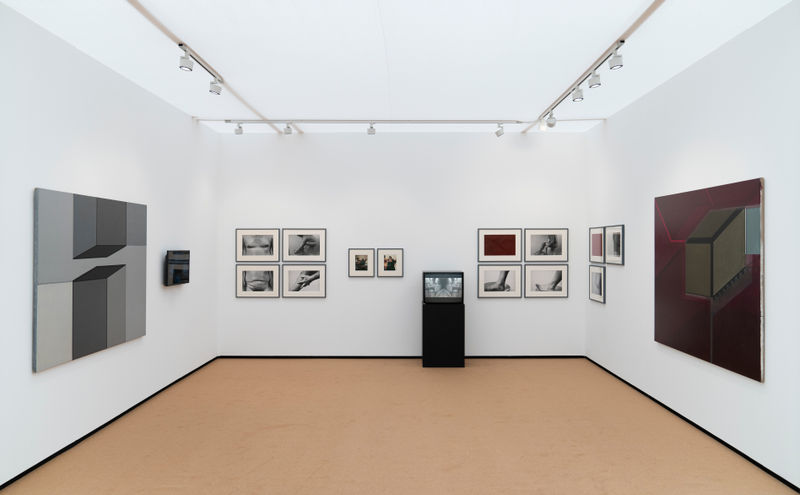Frieze Masters Spotlight: Booth S12
Ab-Anbar is pleased to participate in Frieze Masters Spotlight, with a solo presentation of the Turkish–French artist, Nil Yalter (b.1938, Cairo, Egypt). The booth will focus on Yalter’s two major paintings from the 1960s and a mixed-media installation from the 1970s.
Yalter lives and works in Paris. She participated in the French counter-culture and revolutionary political movement of the late 1960s, immersing herself in the debates around gender, migrant workers from Turkey, and other issues of the time. She was also a pioneer in the French feminist art movement of the 1970s. These social movements and ethnographic science have influenced the artist’s videos, performances and installations from the 1970s in the form of an idiosyncratic, pluralistic aesthetics. The influence of abstract traditions, especially that of Russian constructivism can be observed in her paintings and digital works since her early years.
Yalter was first encouraged to take up painting at a very young age by her religious grandmother. She was familiar with the ornamental patterns from Byzantine and Ottoman arts and was introduced to paintings by Kazimir Malevich and Serge Poliakoft in the late 1950s through a copy of Michel Seuphor’s Dictionary of Abstract Art. The two paintings on view, titled Optical Cubes (1968) and Untitled (1967), are geometric works with hard-edge abstractions that characterise the 1967-68 paintings Yalter realised after her move from Istanbul to Paris in 1965 while engaging with the French counter-culture movement of the time.
The mixed-media installation, titled ‘Le Chevalier d’Eon’ (1978), is an expanded portrait of a transgender individual using video, polaroids, prints, and acrylic paintings. It marks one of the earliest Middle Eastern artworks addressing transgender identity. Shot with a Porta-Pak, the main video of the installation remained hidden and unviewable in Yalter’s archives until the late 2000s, when the Bibliothèque Nationale de France restored and digitised her collection.
‘Le Chevalier d’Éon’ radically challenged the gender politics of patriarchy and the geopolitics of neo-imperialism in 1970s France. In this way, Yalter’s work unbuckled the societal infrastructure that reigned over what it meant to be a man or a woman–almost 40 years ago when the notion of gender identity as a perpetual negotiation was exceptionally subversive–thus standing as one of Yalter’s most revolutionary works.
Nil Yalter’s works reflect a style that blends together all these influences along with autobiographical elements where the personal and the political intertwine.

